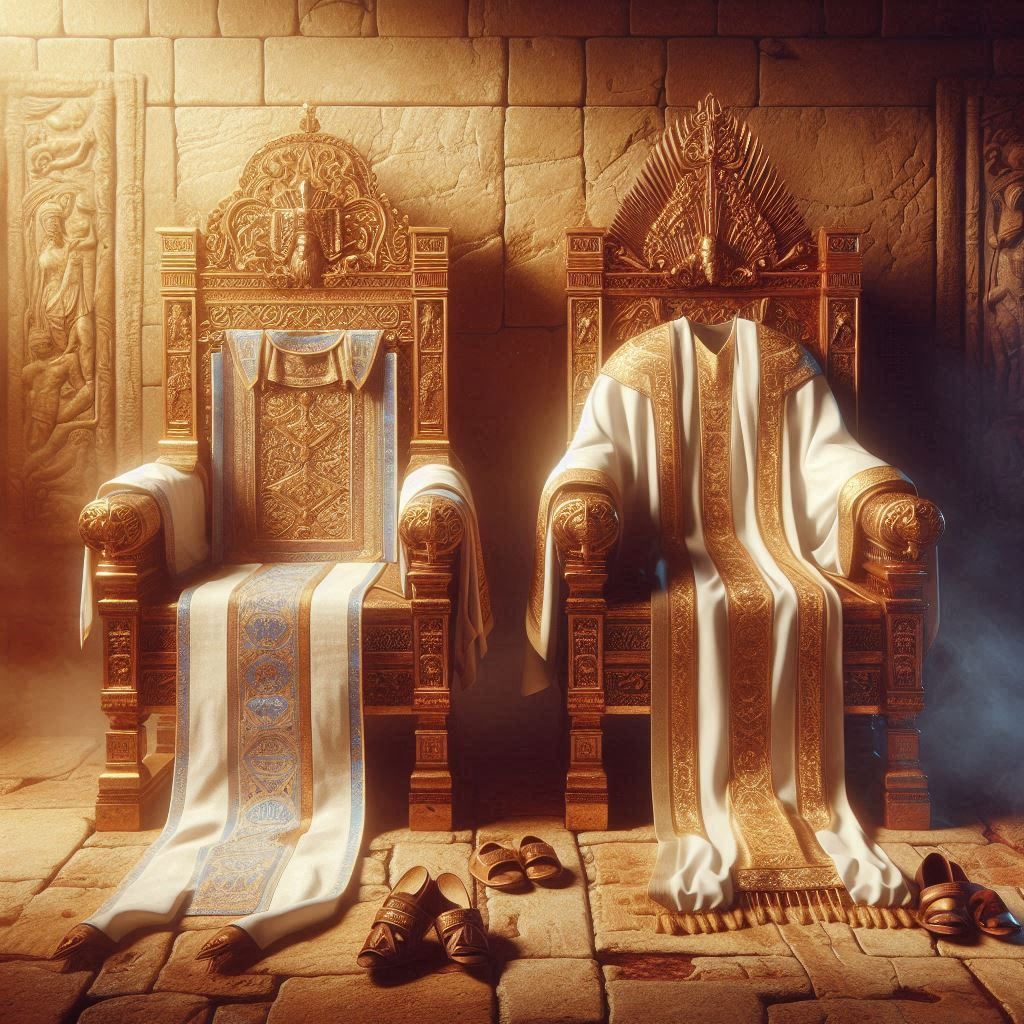Show Notes: Did John Baptize Yeshua into the Melchizedekian Priestly Order-Part 5 of our Melchizedek SeriesEpisode Title: Did John Baptize Yeshua into the Melchizedekian Priestly Order-Part 5 of our Melchizedek Series
Episode Description: In this episode, we explore the intriguing question of whether John the Baptist baptized Yeshua into the Melchizedekian Priestly Order. Join us as we delve into historical, theological, and scriptural insights to uncover the significance of this event. This is Part 5 of our Melchizedek Series, where we continue to examine the profound implications of the Melchizedekian Order in religious history.
Key Topics Covered:
Episode Highlights:
References:
|
Usury-Interest According to God (YHVH)
The Practice of Usury Prohibited How does God/YHVH rule on the practice of usury or exacting of interest on monetary loans by His elect? We find in Torah Reading 61 (according to our “triennial reading cycle-- Torah Reading 61--Exodus 22:25-31 ) the prohibition...
The Critical Role Faith Play in the Prayer Life of a Messianic
The prayer lives of many members in the Hebrew Roots-Messianic Community are ineffective and have little to no associated power. In this installment of TMTO, we look at the role faith places in a Netzari’s prayer life and how faith can transform our prayers, when properly aligned with God’s Word and His Holy Spirit, into a powerful and effective tool for the Body of Messiah.
Constancy-Persistence-Ceaselessness in Prayer
Are our prayers as effective as they should be? We discuss one of the critical-crucial elements of effective prayer-constancy-persistence-ceaselessness in prayer.
Cooking on the Sabbath-Is It Allowed ?
Was God’s commandment that the Hebrews not go out to gather manna on the Sabbath a prohibition against cooking on the Sabbath?
Seek Ye First The Kingdom of God And…
Yeshua instructed us to pursue those things that qualifies one to receive and enter the Kingdom of God and the righteousness of YHVH our Elohim. So how does Torah-keeping fit in with Yeshua’s instruction?
Torah Portions-The Many Types and Patterns of Torah
Returning from the Fall Feasts, we anxiously launch into a new season. Today we examine the two predominant-types of Torah Portions followed by Hebrew Rooters; I reflect upon our 2019 Sukkot experiences; and we examine some patterns and types found in Torah.
Preparing for the Feasts of God-2019–The Connection Between Grace and the Fall Feasts
As we approach the Fall Feasts of 2019, we are compelled to prepare spiritually and physically for each Feast’s arrival. In this discussion of the Fall Feasts, we discuss the connection between God’s grace and His Fall Feasts.
Paul’s Bold Stand Against Anti-Torah Teachings in the Ephesian Church—Part 15 of the Paul and Hebrew Roots Series
Why did Paul insert the creation story and the fall of man into 1 Timothy? Was it, as convention erroneously teaches, the reason women must not teach and preach in the Church? The answer to this question will shock you and cause you to appreciate battle Paul faced against Gnosticism in the Ephesian Assemblies of Messiah. This is Part 15 of our Paul and Hebrew Roots Series.
Paul Never Prohibited Women Teaching and Preaching in Church–Part-14 of the Paul and Hebrew Roots Series
The so-called Church over the centuries has used 1 Timothy 2:11&12 as the basis for their imposed prohibition against women teachers and preachers in the Body of Messiah. But we will show that his passage in no way prohibits women from fulfilling their call and giftings in the Body and Assemblies of Messiah.
First-Timothy—Paul’s Inconsistencies—Myths-Tales-Torah—Part-13 of the Paul and Hebrew Roots Series
In continuing our Paul and Hebrew Roots series, we look at seeming inconsistencies in Paul’s writings as well as examine the role myths and tales played in the teaching of Torah in the Ephesian Assemblies.

